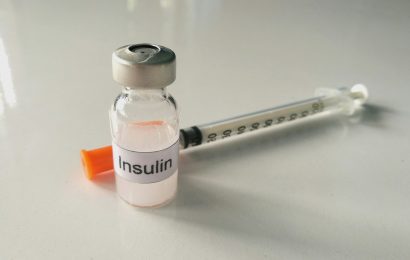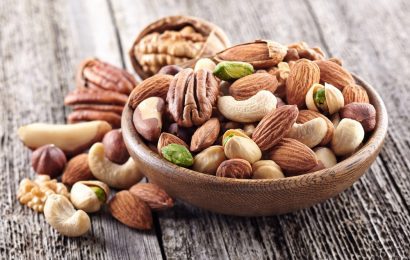You probably saw the news. Scientists and journalists are saying a two-month starvation diet has “cured” or “reversed” Type 2 diabetes in 11 people. Actually, there were some benefits, but nothing close to a cure. What can we actually learn from this study?
Well, the first thing we learn is that many people are totally ignorant when it comes to the temporary nature of weight-loss benefits. The second thing is that journalists will hype scientific results far beyond what the studies actually show.
In this study, 11 people with Type 2, and a similar number of controls, were placed on a 600-calorie-a-day diet. They ate only liquid diet drinks with non-starchy vegetables like broccoli. Their insulin sensitivity and the fat content in their livers and pancreas were monitored, as well as their blood sugar levels.
The study was done at Newcastle University in the United Kingdom and sponsored by the charity Diabetes UK. To quote their press release:
After just one week…[subjects’ fasting] blood glucose levels had returned to normal… A special MRI scan…revealed that the fat levels in the pancreas had returned from an elevated level (8%) to a normal (6%) level. In step with this, the pancreas regained the normal ability to make insulin and as a result, blood glucose after meals steadily improved.
The starvation diet lasted two months, after which, “The volunteers were returned to eating normally but had received advice on portion size and healthy eating.” Three months later, 7 of the 11 people with diabetes still had normal blood glucose levels. One man was quoted as saying he still did not need any diabetes medicines after 18 months.
This research was presented at the American Diabetes Association’s scientific sessions in San Diego and published in the journal Diabetologia.
The theory behind the starvation treatment is that fat stored in the pancreas interferes with insulin production. Studies in mice and humans have shown that fat in the pancreas can damage beta cell function and the cells themselves. Lead researcher Roy Taylor, MD, said that “the very low-calorie diet reduced the amount of fat in the pancreas and liver, which allowed insulin production and function to return to normal.”
How does he know that, though? Reducing pancreatic fat could have caused the improvement, but maybe the beta cells just had less to do and were able to keep up. Or maybe lower glucose levels allowed the beta cells to function better. On 600 calories a day, you would need very little insulin.
And even after returning to a reasonably healthy diet, fat and muscle cells will be gobbling glucose and fat to refill what they’ve lost. This process can go on for weeks or months, so blood glucose levels will stay low until the fat deposits are back where they started.
Dr. Taylor said he got the weight loss idea from looking at the results of bariatric surgeries. As we’ve reported before, some of these people virtually wake up from surgery with their diabetes in remission. Why? Dr. Taylor thought it might be that rapid weight loss was de-fatting the pancreas and liver, improving insulin function. He wanted to replicate the crash weight loss that bariatric surgery patients experience to see if nonsurgical dieters could get the same results.
This reasoning seems illogical, because even after bariatric surgery, it takes a little bit of time to see significant weight loss. But the diabetes remissions often occur right away. A more likely explanation is that reconfiguring the intestines enables normal insulin function, as we discussed here. The rapid weight loss might contribute, but it’s not the whole story, or even most of it, in my opinion.
What’s the bottom line? It looks like excess pancreatic fat is bad for you, and possibly getting rid of it would be good for your diabetes. But we know that weight regain is the norm. Dr. Taylor himself said the real challenge is figuring how to keep the pancreatic fat off.
So the best thing one can say about the starvation treatment is that it could jumpstart the recovery process by helping people regain better insulin function temporarily. Then if they self-manage extremely well, they might be ahead of where they would have been if they hadn’t starved. But the more likely outcome will be that most of the starvers will regain the weight they lost and more, because that’s how bodies respond to dieting. And some of that fat will probably end up in the pancreas.
After three months of being “cured,” four of the eleven subjects have relapsed. In another six months, probably another four will have relapsed. Hopefully, one or two will stay diabetes free, but I wouldn’t bet on it.
Maybe this study was worth a try. I just wish scientists like Taylor wouldn’t self-promote and health journalists wouldn’t sensationalize. I mean, this is a study of 11 people for three months, and they’re announcing a cure? Read all such announcements with serious skepticism.




